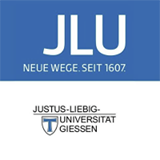Detailed introduction of Justus Liebig University Giessen:
Introduction and Overview
Justus Liebig University Giessen is a well-known public comprehensive university in Germany, located in Giessen, Hesse, Germany. It offers a wide range of subject areas and rich course options, covering natural sciences, humanities and social sciences, medicine, law and other fields, attracting students from all over the world to study and research.
History and Establishment Time
Founded in 1607, the university is one of the oldest universities in Germany, with a long academic tradition and profound cultural heritage. In 1946, the school was named after the famous chemist Justus von Liebig to commemorate his outstanding contributions to the school and the development of the discipline of chemistry.
School Strength
Faculty: The school has a high-quality faculty, including many professors and experts with international reputations in their respective fields. They are not only experienced in teaching, but also actively participate in cutting-edge scientific research projects to provide students with high-quality education and guidance.
Teaching Resources: The school is equipped with advanced teaching facilities and complete learning resources, such as libraries, laboratories, computer centers, etc., which provide strong support for students' learning and research. In addition, the school also cooperates with many domestic and foreign enterprises and institutions to provide students with internship and practice opportunities, helping students to combine theoretical knowledge with practical applications and improve their employment competitiveness.
Scientific Research Achievements: As a research university, Justus Liebig University Giessen has achieved remarkable scientific research results in many disciplines. The school's research projects cover basic research and applied research, involving agricultural science, biology, chemistry, medicine, physics and other fields, and have made important contributions to the development of science and technology.
Institutional nature
Public comprehensive university.
Educational philosophy
Focus on cultivating students' innovation ability, practical ability and interdisciplinary thinking, emphasize the close integration of academic research and teaching, encourage students to actively participate in scientific research projects and academic exchange activities to improve students' comprehensive quality and international competitiveness, and strive to provide students with an open, inclusive and diversified learning environment, cultivate students' global vision and social responsibility.
Key laboratories and disciplines
Key laboratories: The school has a number of advanced research institutions and key laboratories, such as the Liebig Chemical Laboratory, the Cardiopulmonary Institute (CPI), and the Post-Lithium Storage Cluster (POLIS). These laboratories are at the international leading level in research in related fields, providing important support for the school's scientific research work, and also providing students with opportunities to contact cutting-edge scientific research results and practical operations.
Key disciplines: Agricultural science, biology, chemistry, medicine, physics and other disciplines are the school's advantageous disciplines, with high international visibility and influence. Among them, agricultural science ranks 189th in the QS World University Subject Rankings, and biology and biochemistry, biotechnology and applied microbiology, chemistry and other disciplines also perform well.
Faculty
The school has 11 faculties, including the Faculty of Law, the Faculty of Economics and Social Sciences, the Faculty of Cultural Studies, the Faculty of Language and Literature, the Faculty of History, the Faculty of Education, the Faculty of Psychology and Sports Sciences, the Faculty of Mathematics and Information Sciences, the Faculty of Physics, the Faculty of Chemistry and Earth Sciences, the Faculty of Biology and Chemistry, the Faculty of Medicine, etc., covering many subject areas and providing students with a wide range of professional choices.
Ranking
Ranked 475th in the 2022-2023 US News Global Best University Rankings, 193rd in the Best Universities in Europe, and 30th in the Best Universities in Germany. Ranked 445th in the QS World University Rankings. Some of its subjects are also ranked high in related fields, such as agricultural science, biology and biochemistry, chemistry and other subjects.
Expenses
Tuition fees: For EU/EEA students, tuition fees are relatively low, and some majors are even free of charge; for non-EU/EEA students, tuition fees vary according to the major, and the annual tuition fees for bachelor's degree programs are usually between 0-42,500 euros, and the annual tuition fees for master's degree programs are between 0-56,000 euros.
Living expenses: The living expenses in Giessen are relatively moderate, and students' monthly living expenses are about 800-1000 euros, including expenses for accommodation, food, transportation, entertainment, etc.
Campus
Campus location: The main campus is located at Ludwigstraße 23 in Giessen, with a beautiful campus environment and convenient transportation.
Campus facilities: The campus has modern teaching buildings, libraries, laboratories, gymnasiums, canteens and other facilities to meet students' learning, living and entertainment needs. The school's library has a rich collection of books, with a large number of paper books and electronic resources, providing students with a good learning and research environment.
Campus life: The school has various student clubs and organizations, such as the Student Union, academic clubs, cultural clubs, sports associations, etc. Students can participate in corresponding club activities according to their interests and hobbies, enrich their extracurricular life, make friends, and expand their network. In addition, the school also often holds various academic lectures, cultural activities, sports competitions, etc., providing students with a broad platform for communication and display.
-

Heidelberg University
-

University of Freiburg
-

University of Jena
-

University of Marburg
-

University of Rostock
-

University of Bayreuth
-

University of Halle-Wittenberg
-

Leipzig University
-

University of Tübingen
-

Humboldt University of Berlin
-

Mesoamerican University
-

Istmo University
-

Mariano Galvez University of Guatemala
-

Regional University of Guatemala
-

Galileo University
-

Francisco Marroquín University
-

Rafael Landívar University
-

University of the Valley of Guatemala
-

University of San Carlos of Guatemala
-

Technological Institute of Tlaxcala Plateau
-

Golfo University
-

Technological University of South Sonora
-

Technological University of Huejotzingo
-

Tizimín Institute of Technology
-

Chilpancingo Institute of Technology

